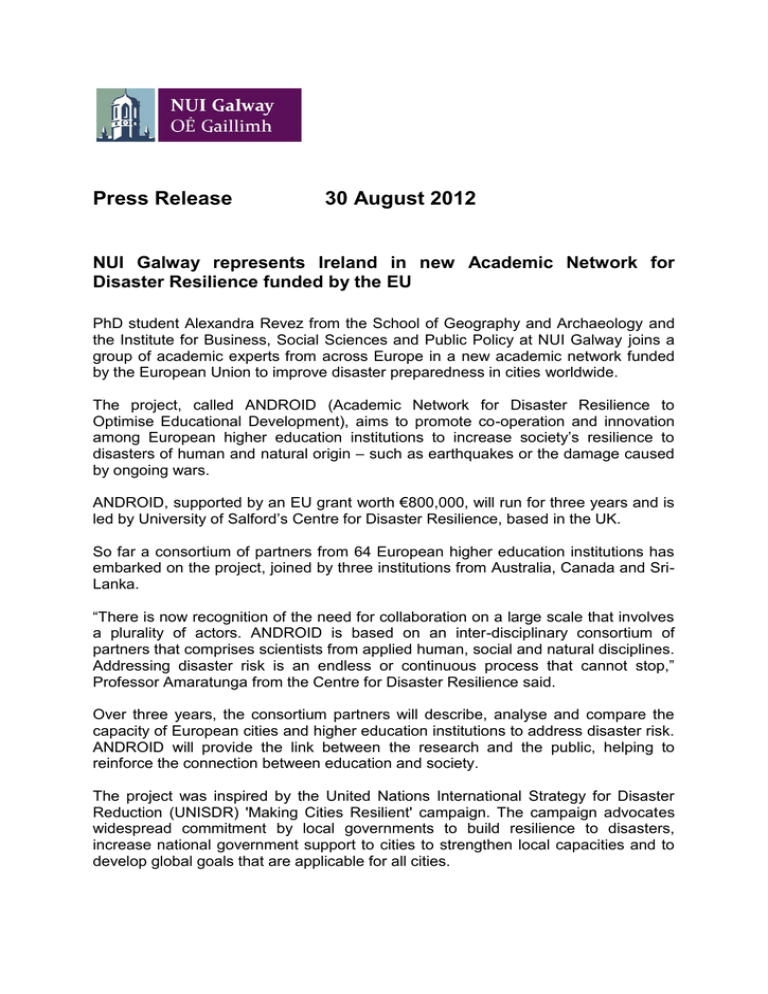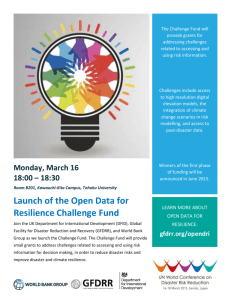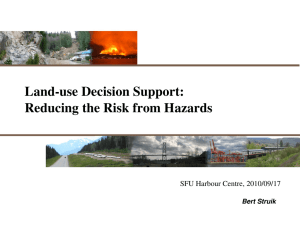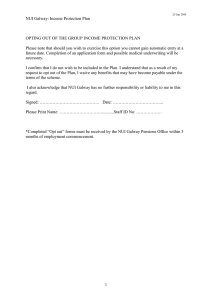Press Release 30 August 2012
advertisement

Press Release 30 August 2012 NUI Galway represents Ireland in new Academic Network for Disaster Resilience funded by the EU PhD student Alexandra Revez from the School of Geography and Archaeology and the Institute for Business, Social Sciences and Public Policy at NUI Galway joins a group of academic experts from across Europe in a new academic network funded by the European Union to improve disaster preparedness in cities worldwide. The project, called ANDROID (Academic Network for Disaster Resilience to Optimise Educational Development), aims to promote co-operation and innovation among European higher education institutions to increase society’s resilience to disasters of human and natural origin – such as earthquakes or the damage caused by ongoing wars. ANDROID, supported by an EU grant worth €800,000, will run for three years and is led by University of Salford’s Centre for Disaster Resilience, based in the UK. So far a consortium of partners from 64 European higher education institutions has embarked on the project, joined by three institutions from Australia, Canada and SriLanka. “There is now recognition of the need for collaboration on a large scale that involves a plurality of actors. ANDROID is based on an inter-disciplinary consortium of partners that comprises scientists from applied human, social and natural disciplines. Addressing disaster risk is an endless or continuous process that cannot stop,” Professor Amaratunga from the Centre for Disaster Resilience said. Over three years, the consortium partners will describe, analyse and compare the capacity of European cities and higher education institutions to address disaster risk. ANDROID will provide the link between the research and the public, helping to reinforce the connection between education and society. The project was inspired by the United Nations International Strategy for Disaster Reduction (UNISDR) 'Making Cities Resilient' campaign. The campaign advocates widespread commitment by local governments to build resilience to disasters, increase national government support to cities to strengthen local capacities and to develop global goals that are applicable for all cities. Quoted on the UNISDR website, Helena Molin Valdes, UNISDR’s interim Director and Manager of ‘Making Cities Resilient’, praised the project saying: “UNISDR has taken part in developing the project proposal and now looks forward to disseminating the results when they emerge. Those results will be especially useful in the second phase of our campaign, where we hope to see more city-to-city learning among our campaign cities that leads to laws and other practical measures to build resilience.” The next phase of ANDROID will involve using all the data collected by the consortium partners to create laws and other practical measures to build resilience. For further information on the ANDROID project, contact Dr Richard Haigh at android@disaster-resilience.net or visit the website at www.disaster-resilience.net. The ANDROID Network receives financial assistance from the European Union. The associated activities and publications are the sole responsibility of the Network consortium and can under no circumstances be regarded as reflecting the position of the European Union. The Institute for Business, Social Sciences and Public Policy at NUI Galway Institute is the largest national multi-disciplinary research hub focused on building an internationally-recognised programme of research-led impacts, as well as activity contributing to public policy debates and contemporary societal issues facing Ireland and Europe. The Institute fosters a culture of research excellence by bringing together scholastic strengths from the College of Business, Public Policy and Law and the College of Arts, Social Science and Celtic Studies at NUI Galway, and also facilitates, supports and enhances existing and emerging collaborative research interactions nationally and internationally. For more information, please visit www.nuigalway.ie/cisc -Ends-




